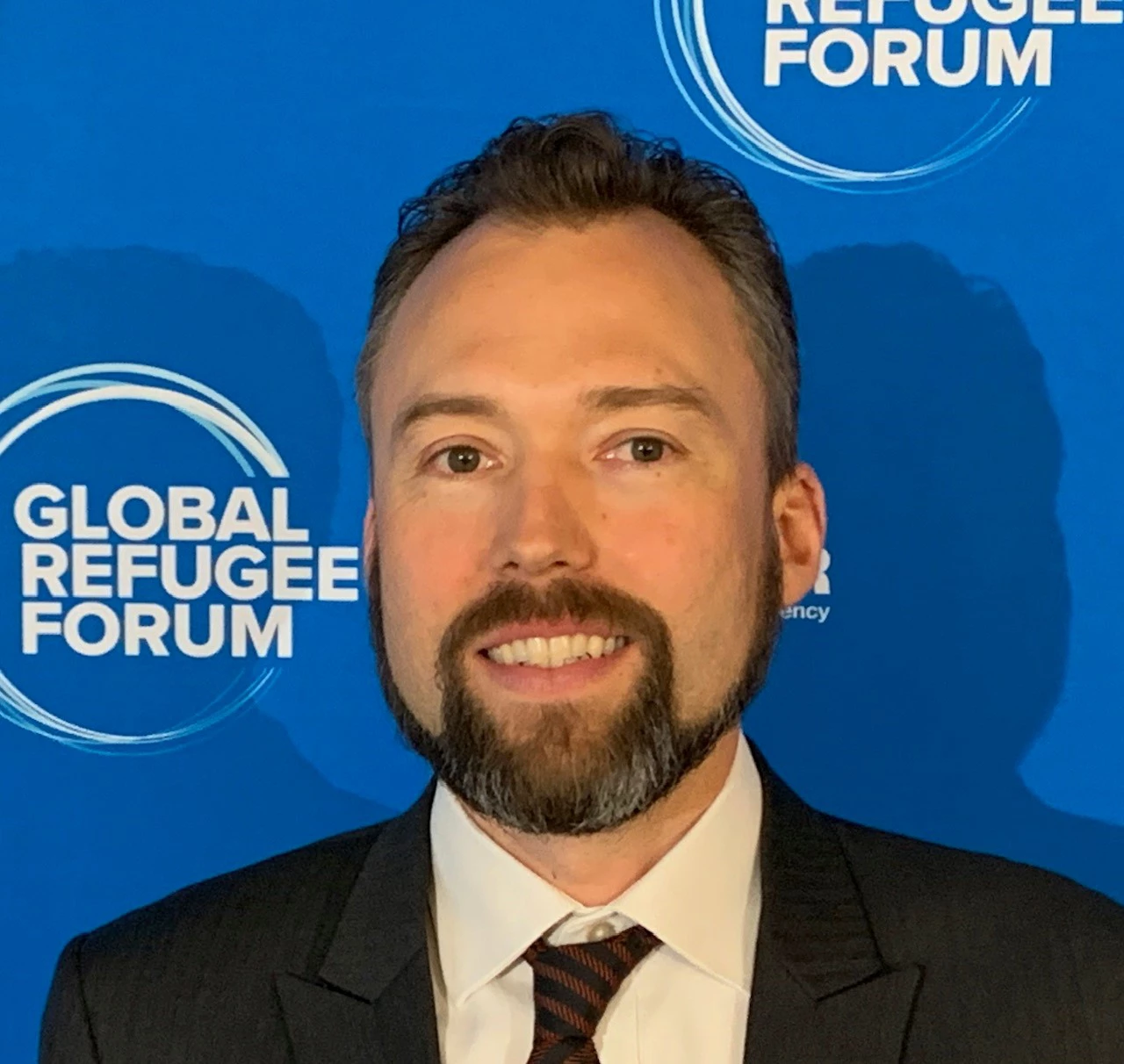 A resident of a refugee camp in Uganda transports jugs of water from a collection point on his bicycle. Credit: Dorte Verner/World Bank.
A resident of a refugee camp in Uganda transports jugs of water from a collection point on his bicycle. Credit: Dorte Verner/World Bank.
We have witnessed Uganda's remarkable journey firsthand as they spearhead the integration of water services in refugee settlements and host communities. It's an inspiring blueprint for other countries grappling with similar challenges. The path of the transition has not been easy, and certainly not without its complexities and challenges. Yet, Uganda is proving that step by step, incremental progress is possible, leading to ultimate attainment of the end goal—fully integrated water services across refugees and host communities sustainably managed to meet the needs of both groups. The collaboration between the World Bank, United Nations High Commissioner for Refugees (UNHCR), and the government of Uganda has yielded valuable insights and lessons learned on this reform journey.
Develop a long-term, integrated approach
One of the key lessons learned from this reform is the importance of a fundamental transition to development ways of working and making changes on water services in refugee settlements. It is crucial to move away from short-term, emergency-focused solutions toward more long-term, integrated approaches that consider the needs of both refugees and host communities. This transition from humanitarian to development model provides a key long-term sustainable response that aligns with national priorities and ensures the efficient and equitable provision of water service.
Demonstrate political commitment by implementing reforms that support integration
Policy and regulatory reforms have also played a significant role in the journey toward full integration of water provision. The government of Uganda has shown strong political commitment at the highest levels, being among the first few countries in the world to adopt the Comprehensive Refugee Response Framework and making subsequent pledges at the December 2023 Global Refugee Forum to transition humanitarian social services and water systems into national systems. The establishment of institutional structures and accountability mechanisms has been crucial in supporting integration efforts. These measures have improved coordination and foster better collaboration among stakeholders, leading to a more unified and enduring approach to water services in refugee settlements.
Establish institutional structures, financing needs, and accountability mechanisms
Institutional capacity and financing needs have been identified as critical factors in the successful transition from a humanitarian to a development approach. The implementation of the ”costed” Uganda Water and Environment Sector Response Plan for Refugees and Host Communities and the national utility-based model has been instrumental for laying the groundwork for financial planning for the transition and have outlined the technical and capacity requirements necessary to upgrade refugee water systems to meet national standards.
As we reflect on the past several years of supporting water delivery in refugee settlements in Uganda, it is clear that the transition from a humanitarian to a development approach has been a positive and necessary evolution. The lessons learned from this experience will continue to inform and guide future efforts to provide sustainable water services to refugees and host communities, not only in Uganda but around the world. The collaboration between the government, international organizations, and local communities has been instrumental in achieving these milestones, and it is essential to continue building on these lessons to ensure the long-term sustainability of water services for all those affected by forced displacement.




Join the Conversation